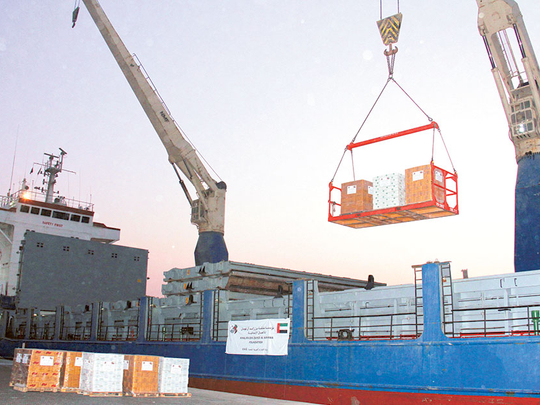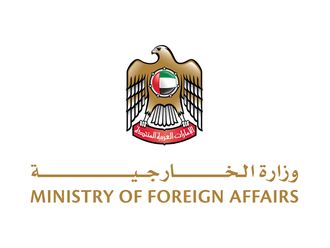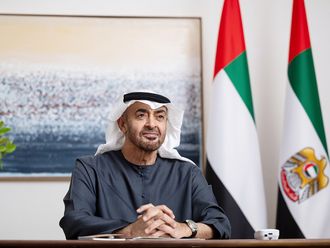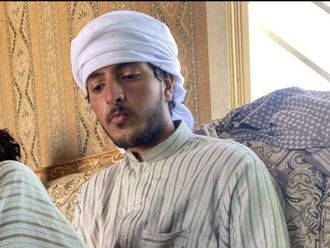
Dubai: The UAE government’s “Yemen we Care” campaign in recent days to help 10 million Yemenis living in conflict-torn parts of their country is part of a long-standing generosity shown by the country to its neighbours since the 1970s.
The telethon on Friday sought to raise cash over above the Dh744 million ($202 million) already sent in medical, food and emergency supplies by the UAE in the past four months to Yemen, nearly half of the aid pledged by other countries.
As many as 181,000 Yemeni families (approximately 1.1 million people) are being helped through 29,000 tonnes of food, including 1.4 million food baskets and Dh181 million worth of emergency relief consisting of grains, edible oils, canned food and other foodstuff.
In August, a ship loaded with relief materials, including 4,000 tonnes of food and rations, reached Aden port. In June, the country sent 57 trucks carrying aid to Yemen.
Shaikh Hamdan Bin Zayed Al Nahyan, Ruler’s Representative in the Western Region and Chairman of the ERC, stressed at the launch of the campaign that the UAE leadership and people are concerned about the current humanitarian situation in Yemen.
He added that this concern reflects the strength of fraternal relations between the two brotherly peoples of the UAE and Yemen.
“The suffering of our people in Yemen compounds daily with eminent threat of a real catastrophe,” he said.
The latest humanitarian push continues the UAE tradition of giving.
The UAE has championed the cause of providing charitable and humanitarian support to people affected and displaced by different crises and to improving the lives of the less fortunate around the world, said Shaikha Lubna Bint Khalid Al Qasimi, Minister of International Cooperation and Development (MICAD) and Head of the UAE Committee for the Coordination of Humanitarian Foreign Aid.
In a statement on Friday marking International Day of Charity, celebrated worldwide on September 5, Shaikha Lubna said the UAE had continued to provide all forms of charitable, humanitarian and developmental aid, under the directives of President His Highness Shaikh Khalifa Bin Zayed Al Nahyan, His Highness Shaikh Mohammad Bin Rashid Al Maktoum, Vice-President and Prime Minister of the UAE and Ruler of Dubai, and His Highness Shaikh Mohammad Bin Zayed Al Nahyan, Abu Dhabi Crown Prince and Deputy Supreme Commander of the UAE Armed Forces, and based on the philosophy adopted by the UAE’s founding father, the late Shaikh Zayed Bin Sultan Al Nahyan.
Shaikha Lubna added there are more than 45 donor organisations operating in the UAE as an extension of the country’s journey for humanitarian and developmental aid, which started in 1971 with the establishment of the Abu Dhabi fund for Development, the Emirates Red Crescent in 1983 and the Zayed Bin Sultan Al Nahyan Charitable and Humanitarian Foundation in 1992.
“The UAE’s continuous humanitarian and developmental initiatives have consolidated its position as the world’s largest donor of official development aid, relative to its national income,” Shaikha Lubna said.
The UAE spent around Dh16.4 billion in foreign assistance between 2010 and 2012.
“Funds were distributed mainly for health, infrastructure development, energy generation and supply, transport and storage, social services, education, water and sanitation, tourism and industry between 2010 and 2012. Jordan, Palestine, Pakistan, Yemen, Afghanistan, Sudan, Kazakhstan, Morocco, Egypt and Syria were the top 10 Official Development Assistance (ODA) eligible countries in the same period,” she said.
Around $200 million (Dh735 million) was spent in 2014 on construction plans in Gaza following Israeli attacks.
In early 2014, the UAE government made a Dh18 million contribution to the United Nations High Commissioner for Refugees (UNHCR) for the provision of health assistance in the Zaatari and Azraq refugee camps in Jordan, of which Dh7 million will be allocated to health activities and Dh11 million for water, sanitation and health.
In 2013, on a per capita basis, its international aid profile stood at a staggering Dh19.1 billion, a 375 per cent increase over its performance in 2012.
Its decision in 2013 to form the Ministry of International Cooperation and Development (Micad) — formerly the UAE Office for the Coordination of Foreign Aid — has helped the UAE consolidate its various aid activities onto a single platform and showcase its achievements.
The diversity of UAE’s aid and assistance to 137 countries around the world has resulted in major gains on myriad fronts from improved access to education and health care services, supporting research, innovation and infrastructure development to providing relief during emergencies.












